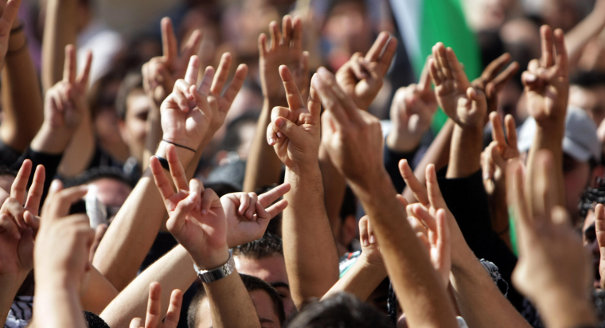(Geneva) – States should adopt laws and policies to support civil society actors and organisations and end impunity for abuses and attacks against them, the Human Rights Council has said in an important and timely resolution.
The resolution – which was led by Ireland, together with Chile, Japan, Sierra Leone and Tunisia – emphasises the crucial role of a strong and independent civil society in promoting democracy, development and the rule of law, while condemning the continuing use of laws, such as those relating to counter-terrorism or limiting access to funding, to restrict and criminalise the vital work of activists and NGOs.
‘Coming just days after the arbitrary detention of Maryam Al-Khawaja in Bahrain, the imposition of travel bans against indigenous human rights defenders in Russia, the imprisonment of political dissidents in China, and the criminalisation of accessing foreign funds for non-governmental organisations in Egypt, this resolution is both timely and important,’ said ISHR’s Director of Human Rights Council Advocacy, Michael Ineichen.
‘We particularly welcome the resolution’s emphasis on protecting “persons belonging to minorities and vulnerable groups” and empowering people and organisations “espousing minority or dissenting beliefs and views”,’ Mr Ineichen said. ‘This is especially important in the context of ongoing attacks against women human rights defenders and the criminalisation of advocacy on LGBT rights in many countries around the world,’ Mr Ineichen said.
The resolution also urges States to ensure access to justice, accountability and an end to impunity for human rights violations and abuses against civil society actors, and welcomes recent initiatives by some States to enact specific laws and policies to protect and support human rights defenders and other civil society actors.
‘Impunity for attacks against civil society actors amounts to a further assault on human rights and the rule of law. We urge States to consider enacting specific laws to protect civil society, such as the recently enacted Côte d’Ivoire law on human rights defenders which explicitly enshrines the State’s legal obligation to investigate and pursue accountability for attacks,’ Mr Ineichen said.
The resolution also includes a welcome emphasis on the positive role that civil society actors and organisations can play in diverse areas, such as achieving transitional justice, combating discrimination, countering corruption and promoting corporate accountability, particularly where they are able to effectively participate in the development of laws and policies on such issues. Speaking in favour of the resolution, States including Sierra Leone and Tunisia highlighted the crucial role of civil society actors in ending conflict, and promoting transitional justice and democracy in their countries.
‘Mature governments see civil society as an indispensable asset, not a threat,’ Mr Ineichen said. ‘This is the case both at the national level, where civil society has a crucial role in the development of public policy, and at the international level, where the participation of NGOs in bodies such as the Human Rights Council is axiomatic to their effectiveness.’
Reflecting this, the resolution calls on the UN High Commissioner for Human Rights to prepare a compilation of practical recommendations to States to ensure a safe and enabling environment for civil society, drawing on good national laws and policies in this regard.
In addition to the core group of Ireland, Chile, Japan, Sierra Leone and Tunisia, States that spoke strongly in support of the resolution included Austria, Brazil, Costa Rica, the Czech Republic, Estonia, France, Germany, Montenegro, South Korea, the United Kingdom, and the United States.
States that introduced hostile amendments or spoke against the resolution included Algeria, China, Cuba, India, Pakistan, Russia, Saudi Arabia, South Africa, Vietnam. A South African effort to remove a reference in the text to HRC Res 24/24 was strongly rejected, amounting to a strong reaffirmation of that landmark resolution on reprisals by the Council, despite efforts by some delegations in New York to undermine it.




